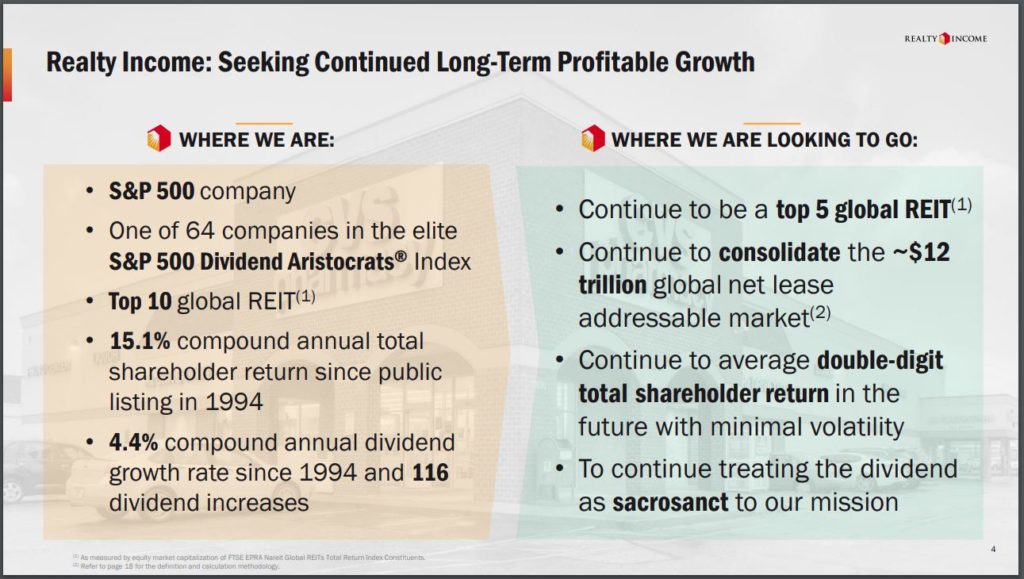Embarking on a journey through the realm of essential insurance types for businesses, we delve into a crucial aspect of risk management that can significantly impact the success and longevity of any enterprise. From safeguarding against unforeseen events to ensuring financial stability, these insurance types play a pivotal role in the business landscape.
Let's explore the fundamental insurance policies that every business should consider to protect their interests and assets.
As we navigate through each insurance type, we will uncover the distinctive features, coverage details, and real-world scenarios that highlight the importance of being adequately insured in today's dynamic business environment.
Types of Insurance
Insurance is a crucial aspect of risk management for businesses, offering protection against unforeseen events that could disrupt operations or lead to financial losses. Here are the 10 essential insurance types every business needs:
1. General Liability Insurance
General liability insurance provides coverage for claims related to bodily injury, property damage, and advertising injury. It protects businesses from lawsuits and helps cover legal expenses.
2. Property Insurance
Property insurance covers damage to physical assets such as buildings, equipment, and inventory due to fire, theft, or other covered perils. It helps businesses recover from property-related losses.
3. Business Interruption Insurance
Business interruption insurance compensates businesses for lost income and ongoing expenses in case of a covered event that disrupts operations, such as a fire or natural disaster.
4. Commercial Auto Insurance
Commercial auto insurance provides coverage for vehicles used for business purposes, protecting against accidents, theft, and other risks. It is essential for businesses with company vehicles.
5. Workers' Compensation Insurance
Workers' compensation insurance covers medical expenses and lost wages for employees who are injured or become ill on the job. It is mandatory in most states for businesses with employees.
6. Cyber Liability Insurance
Cyber liability insurance protects businesses from losses related to data breaches, cyberattacks, and other cyber threats. It covers costs associated with data recovery, legal fees, and regulatory fines.
7. Professional Liability Insurance
Professional liability insurance, also known as errors and omissions insurance, provides coverage for claims of negligence or inadequate work. It is crucial for businesses that offer professional services.
8. Product Liability Insurance
Product liability insurance protects businesses from claims related to product defects that cause harm or injury to consumers. It covers legal costs and compensation for damages.
9. Directors and Officers Insurance
Directors and officers insurance provides protection for company executives against lawsuits alleging wrongful acts or decisions. It safeguards personal assets and helps attract top talent to leadership positions.
10. Umbrella Insurance
Umbrella insurance offers additional liability coverage beyond the limits of other insurance policies. It provides an extra layer of protection against large and unexpected claims.
General Liability Insurance
General liability insurance is a crucial coverage that every business should have to protect against potential financial losses resulting from third-party claims of bodily injury, property damage, or advertising injury.
Importance of General Liability Insurance
General liability insurance is essential for businesses as it provides coverage for legal fees, medical expenses, and damages that may arise from accidents or incidents that occur on business premises or as a result of business operations.
- General liability insurance can help cover the costs associated with bodily injuries suffered by customers or clients on business property.
- It can also protect a business from property damage claims resulting from accidents caused by the business operations.
- General liability insurance can cover legal fees and settlements in the event of a lawsuit related to advertising injury, such as copyright infringement or defamation.
Examples of Situations Where General Liability Insurance is Vital
- If a customer slips and falls in your store, general liability insurance can help cover their medical expenses and any legal costs if they decide to sue.
- If your business accidentally damages a client's property while providing a service, general liability insurance can help cover the repair or replacement costs.
- In the event of a lawsuit claiming your advertising caused harm to another business, general liability insurance can cover legal defense costs.
How General Liability Insurance Protects a Business
General liability insurance protects a business by providing financial coverage for claims and lawsuits related to bodily injury, property damage, or advertising injury. This coverage can help prevent significant financial losses that could otherwise threaten the stability and reputation of the business.
Property Insurance

Property insurance provides coverage for physical assets owned by a business, such as buildings, equipment, inventory, and furniture, against risks like fire, theft, vandalism, and natural disasters.Property insurance is crucial for businesses because it helps protect against financial losses that can occur due to damage or destruction of physical assets.
Without property insurance, a business may struggle to recover from a major incident that results in the loss of valuable property.
Benefits of Property Insurance
- Rebuilding or Repairing Damaged Property: Property insurance can cover the costs of repairing or rebuilding damaged property, helping businesses resume operations quickly.
- Replacing Stolen or Lost Assets: In case of theft or loss of assets, property insurance can provide coverage for the replacement of these items.
- Business Interruption Coverage: Property insurance can also include coverage for lost income due to a covered event that forces the business to temporarily close.
Workers' Compensation Insurance
Workers' compensation insurance is a crucial type of coverage that provides benefits to employees who suffer work-related injuries or illnesses. It also protects employers from potential legal liabilities associated with workplace accidents.
Significance of Workers' Compensation Insurance
- Ensures medical treatment and wage replacement for injured employees.
- Helps prevent costly lawsuits from employees seeking compensation for workplace injuries.
- Demonstrates a commitment to employee well-being and safety.
Benefits for Employees and Employers
- Employees: Receive financial support and medical care without having to prove fault.
- Employers: Avoid financial strain from out-of-pocket payments for employee injuries.
- Both parties: Maintain a positive work environment with a focus on safety and support.
Legal Requirements
Workers' compensation insurance is mandatory in most states for businesses with employees. Failure to provide this coverage can result in penalties, fines, or legal action. Employers must adhere to state-specific regulations regarding coverage limits, reporting procedures, and claims processing to ensure compliance and protect both employees and the business.
Commercial Auto Insurance
Commercial auto insurance is a crucial form of coverage for businesses that utilize vehicles as part of their operations. Whether your company owns a fleet of delivery trucks, vans for transporting goods, or even just a single company car, having the right insurance in place can protect your business from financial loss in the event of an accident or damage to the vehicle.
Coverage Provided by Commercial Auto Insurance
- Liability coverage for bodily injury and property damage: This helps cover the costs associated with injuries or property damage caused by your business vehicle.
- Collision coverage: This pays for repairs or replacement of your vehicle if it is damaged in a collision.
- Comprehensive coverage: This protects your vehicle from non-collision incidents such as theft, vandalism, or natural disasters.
- Uninsured/underinsured motorist coverage: This provides protection if your vehicle is involved in an accident with a driver who does not have insurance or enough insurance to cover the damages.
- Medical payments coverage: This helps cover medical expenses for you and your passengers if injured in a car accident.
Examples of When Commercial Auto Insurance is Necessary
Here are some scenarios where having commercial auto insurance would be essential:
- A delivery driver gets into an accident while making a delivery for your business.
- Your company car is stolen from a parking lot while an employee is on a business trip.
- An employee driving a company vehicle rear-ends another car, causing injuries to the passengers.
Cyber Liability Insurance
In today's digital age, businesses are increasingly reliant on technology to store sensitive data and conduct daily operations. With this increased reliance comes a higher risk of cyber-attacks and data breaches. Cyber liability insurance is essential to protect businesses from the financial losses associated with these incidents.
Risks Covered by Cyber Liability Insurance
Cyber liability insurance typically covers a range of risks, including:
- Data breaches
- Network security failures
- Identity theft
- Business interruption due to cyber-attacks
- Legal expenses related to data breaches
Costs of Cyber-Attacks and Mitigation by Cyber Liability Insurance
The costs of cyber-attacks can be substantial, including expenses for data recovery, legal fees, regulatory fines, and reputational damage. Cyber liability insurance helps mitigate these risks by providing coverage for financial losses and legal expenses resulting from a cyber incident.
Additionally, some policies may offer services such as forensic investigations, credit monitoring for affected individuals, and public relations support to manage the fallout from a data breach.
Business Interruption Insurance
Business Interruption Insurance plays a vital role in protecting businesses from financial losses in the event of a disruption to their operations. This type of insurance coverage helps businesses cover expenses and recover lost income during the downtime caused by unforeseen events.
Types of Losses Covered
Business Interruption Insurance typically covers the following types of losses:
- Lost Profits: Compensation for the income that would have been earned if the business was operating normally.
- Fixed Costs: Reimbursement for ongoing expenses such as rent, utilities, and salaries, even when the business is not generating revenue.
- Temporary Location: Coverage for the expenses of moving to and operating from a temporary location while the main business location is being repaired or rebuilt.
- Extra Expenses: Reimbursement for additional costs incurred to minimize the impact of the interruption and expedite the resumption of business operations.
Professional Liability Insurance
Professional liability insurance, also known as errors and omissions insurance, is crucial for businesses that offer services. This type of insurance protects businesses from claims of negligence, errors, or omissions arising from their professional services.
Importance of Professional Liability Insurance
Professional liability insurance is essential for service-based businesses as it provides financial protection in case a client sues for mistakes or oversights in the services provided. This insurance covers legal fees, court costs, and settlements, preventing businesses from facing significant financial losses due to claims of professional negligence.
- Professional liability insurance safeguards businesses against claims of inadequate work or negligent actions that result in financial harm to clients.
- It helps maintain the reputation and credibility of the business by showing clients that the company is prepared to take responsibility for errors and omissions.
- Without professional liability insurance, businesses may face severe financial consequences and damage to their professional reputation in the event of a lawsuit.
Real-World Examples
One notable example is a marketing agency that was sued by a client for failing to deliver the promised results. Thanks to their professional liability insurance, the agency was able to cover the legal costs and settlement amount without jeopardizing their business.
Another example is a software development firm that faced a lawsuit from a client claiming that the software had critical bugs leading to financial losses. Professional liability insurance helped the firm navigate the legal process and protect their business assets.
Product Liability Insurance
Product Liability Insurance is crucial for businesses involved in manufacturing or selling products as it provides protection against legal claims that may arise due to any defects or issues with their products. This type of insurance is designed to cover the costs associated with product recalls, legal defense, settlements, and judgments in case a product causes harm to a consumer.
Significance of Product Liability Insurance
Product Liability Insurance helps businesses mitigate the financial risks associated with product-related lawsuits. In the event that a customer files a claim against a company alleging injury or damage caused by a defective product, this insurance can cover the legal expenses and compensation costs, safeguarding the business from significant financial losses.
- Product liability insurance protects businesses from lawsuits arising from injuries or damages caused by their products.
- It covers legal defense costs, settlements, and judgments, reducing the financial burden on the business.
- Helps maintain the reputation and credibility of the business by demonstrating responsibility and accountability towards consumer safety.
Examples of Product Liability Cases
Example 1: A toy company faces a lawsuit after a child chokes on a small part of a toy and suffers injuries. The product liability insurance helps cover the legal fees and settlement costs.
Example 2: A cosmetic company is sued by customers who experienced adverse reactions to a skincare product. The insurance assists in resolving the claims and compensating the affected individuals.
Directors and Officers Insurance

Directors and Officers Insurance is a crucial type of coverage that businesses should consider investing in to protect their leadership team. This insurance provides financial protection for directors and officers in case they are personally sued for alleged wrongful acts while managing the company.
Necessity of Directors and Officers Insurance
- Directors and officers can be held personally liable for decisions made on behalf of the company.
- Without this insurance, leaders may have to pay out of pocket for legal fees and damages if they are sued.
- Having this coverage can attract top talent to leadership positions, knowing they are protected.
How Directors and Officers Insurance Protects Individuals
- Provides coverage for legal defense costs, settlements, and judgments.
- Protects personal assets of directors and officers from being seized to cover liabilities.
- Gives peace of mind to individuals in leadership roles, allowing them to make decisions without fear of personal financial ruin.
Examples of Essential Coverage
- If a director is accused of breaching their fiduciary duty, this insurance can cover legal fees and damages.
- In case of a lawsuit alleging mismanagement of company funds, directors and officers insurance can provide financial protection.
- If there are claims of discrimination or harassment against a company's leadership, this coverage can help defend against such allegations.
Final Summary
In conclusion, the landscape of business insurance is multifaceted and essential for the sustainable growth of any company. By understanding and investing in the right insurance policies, businesses can mitigate risks, protect their operations, and thrive in an ever-changing market.
Remember, the key to long-term success lies in proactive risk management and strategic insurance planning.
Answers to Common Questions
Is cyber liability insurance necessary for all businesses?
Cyber liability insurance is crucial for any business that handles sensitive data or operates online. It helps protect against cyber threats, data breaches, and potential financial losses due to cyber-attacks.
What does professional liability insurance cover?
Professional liability insurance, also known as errors and omissions insurance, covers claims of negligence, errors, or omissions related to professional services provided by a business. It helps protect against lawsuits and legal expenses.
Why is business interruption insurance important?
Business interruption insurance provides coverage for lost income and expenses when a business is unable to operate due to a covered peril, such as a natural disaster or a fire. It helps businesses stay afloat during challenging times.
Do all businesses need product liability insurance?
Product liability insurance is especially important for businesses that manufacture or sell products. It helps protect against legal claims arising from product defects, malfunctions, or injuries caused by the products.




